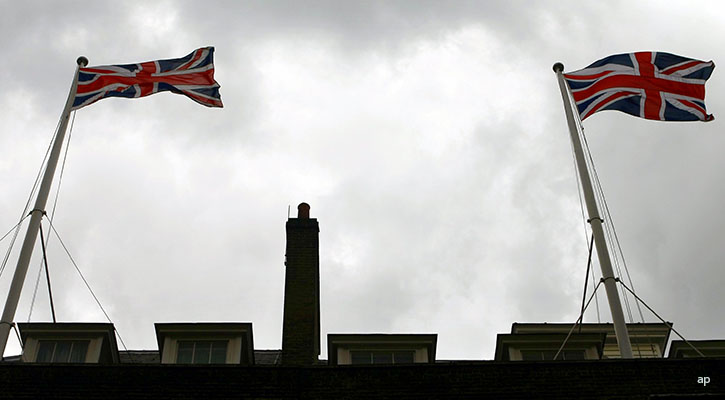
The Chancellor today unveiled a whole range of measures aimed at easing the cost of living crisis, including a much-anticipated and trailed windfall tax on energy companies. For a one-off, this statement was surprisingly dense, with a lot to unpack. The spring statement was only two months ago after all. Let’s kick off with the main points and round up the reaction from experts.
Windfall Tax
Has there been a government policy more well trailed than the windfall tax on energy companies? The clamour probably got too much for the Treasury to ignore in the end. So after a number of weeks of “kite flying” – when the government drip feeds a policy through the media to test the reaction from the public – it’s finally here. There was a brief moment when it sounded like Sunak had changed his mind when he started talking about avoiding “ideology” and being “pragmatic” but here it was, and it had some upper case treatment: the Energy Profits Levy aims to raise £5 billion in a year from a 25% tax on oil and gas company profits. This will be temporary and phased out if oil and gas prices return to “historically more normal levels”. As Sunak pointed out, the windfall tax is not a new policy.
The move “looks like good politics and it may provide economic relief too, in the near term”, argues AJ Bell investment director Russ Mould, who says that this hasn’t eased the confusion surrounding UK’s energy policy.
This is the stick, but the carrot comes in the form of tax relief under the Investment Allowance. At time of writing, both Shell (SHEL) and BP (BP.) share prices are up by just under 1.5%, so investors are not panicking yet.
The levy doesn’t include the energy generation sector, which is also revelling in high power prices, so the utilities have been reprieved, for now. “The Treasury will urgently evaluate the scale of these extraordinary profits and the appropriate steps to take,” Sunak said. Share prices in Centrica (CNA), SSE (SSE) and United Utilities (UU) took a tumble today, reacting to the Chancellor’s warning: you’re next. This presents a problem for the government’s pursuit of net zero as these companies are in the vanguard of the energy transition. “Such a tax grab is likely to imply that renewable providers will subject to further, similar moves in the future,” says Garry White, chief investment commentator at Charles Stanley. “This impacts the attractiveness of potential long-term returns in the sector, reducing the likelihood that net-zero targets will be met.”
Helicopter Money?
The US government handed citizens free money during the pandemic in the form of generous stimulus cheques. Where that cash ended up was not the government’s business, but the aim was for at least some of it would end up being spent in the real economy. But the UK has been reluctant to give the public free money. Most UK schemes since the pandemic started have been indirect forms of largesse: the furlough scheme, and the energy bill rebate/loan (now scrapped). Even the council tax discount is means tested and doesn’t result in the direct transfer of money from state to subject. (I'm not counting "bounce back" loans, nearly £5 billion of which money criminals helped themselves to).
These are the details: a one-off £650 payment to more than eight million low-income households on benefits, with additional one-off payments of £300 to pensioners and £150 to individuals receiving disability benefits. Retail shares rose today on the expectation that this money will be spent. Sunak referred to £300 billion in savings salted away since the pandemic – some of which is now being spent on holidays – but it’s clear that this is an inverted pyramid: the most wealthy will have saved the most, and the poorest the least. With better-off pensioners receiving £300, will that money end up in the stock market? A shrewd IFA may tempt an investor to buy shares or funds in this uncertain environment on the grounds that valuations are more appealing (the S&P 500 went into a bear market last week, for example).
Keeping pensioners in mind – UK state pensions rose 3% this April because they were linked to a period of lower inflation, but they will soon be linked to September 2022's CPI number. If the Bank of England’s projections come good, inflation could be above 10% in the autumn.
And more good news: the “triple lock” has been restored. This is a commitment increase the state pension every tax year by the higher of: inflation, average wage growth or 2.5%.
The Department for Work and Pensions said today that the changes could be worth an extra £1,000 a year.
What about the middling folk and everyone else? Well, there’s a non-means tested £400 energy rebate this year which replaces the £200 rebate/loan scheme and it doesn't need to be paid back.
Is This Really the End?
All these measures are unlikely to be enough to solve the cost-of-living crisis on their own, especially as another change in the Ofgem price cap is due in the autumn (following April’s 54% rise). James Lynch, fixed income investment manager at Aegon Asset Management, thinks that the pressure will ramp again later this year, tempting the government into “blunt measures such as VAT cuts”.
And Finally… Fiscal Edition
Last week I looked at the Bank of England’s seeming impotence in the face of calls to “do something” and I examined the limits of monetary policy (as well as the limits of my economics expertise). Perhaps Sunak is sensing that the public have lost faith in the levers of state to improve the lot of the average person. So these were strong words under the circumstances: “We can get inflation under control. It is not some abstract force outside our grasp. It may take time, but we have the tools we need and the resolve it will take to reduce inflation.” Those looking for a rift between Threadneedle Street and No 11 Downing Street will have been reassured by Sunak backing Andrew Bailey: “I know the Governor and his team will take decisive action to get inflation back on target and ensure inflation expectations remain firmly anchored.”
A final thought: why so much jargon, chancellor? Knowing that the public will be watching the TV or listening to the radio in great anticipation today, did we really need such Treasury speak as this: “Excessively adding fiscal stimulus into a supply constrained economy … risks being counterproductive and increasing inflationary pressures.”





























